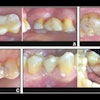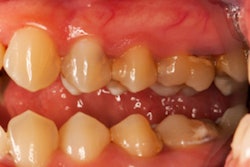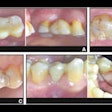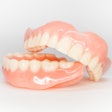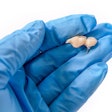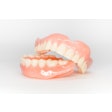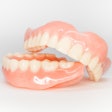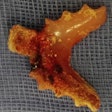
As the body of research linking periodontitis with a host of other disease states -- including diabetes, cardiovascular disease, rheumatoid arthritis, surgical complications, and risk of fetal death -- grows, a new study has added yet another to the list: breast cancer (Breast Cancer Research and Treatment, October 19, 2010).
"To our knowledge, this is the first study on the association between periodontitis and breast cancer," Birgitta Söder, DrMedSc, PhD, Lic Odont Sc, RDH, a professor emeritus at Karolinska Institute, told DrBicuspid.com.
The American Cancer Society estimates 209,060 cases of invasive breast cancer in 2010, with more than 40,000 deaths. Breast cancer is rarer in men than women, accounting for less than 1% of breast cancer diagnoses, but both men and women should report any changes in breast tissue to their doctors.
“This is the first study on the association between periodontitis and breast cancer.”
— Birgitta Söder, DrMedSc, PhD,
Karolinska Institute
Periodontal disease affects 15% to 35% of adults in industrialized countries. Most often caused by poor hygiene and bacterial infection, disease-active periodontitis also seems to be closely associated with human cytomegalovirus and Epstein-Barr virus co-infection. It is believed that these viruses act together to suppress immune response to bacterial challenges. Herpes viruses may also contribute to chronic periodontitis, leading the authors to conclude that these viruses and bacteria act together to lead to low-degree chronic inflammation and carcinogenesis.
"In severe periodontitis, probably there will be co-infection closely associated with a virus," Dr. Söder said.
The prospective study by Dr. Söder and colleagues followed 3,273 randomly selected subjects from 1985 to 2001 who were 30-40 years of age at baseline. At baseline, 1,676 individuals underwent a clinical oral examination (group A); 1,597 subjects were not clinically examined but were registered (group B).
In total, 26 subjects in group A and 15 subjects in group B had breast cancer. The incidence of breast cancer was 1.75% in subjects who had periodontal disease and/or any missing molars, and 0 in subjects who had periodontal disease but had no missing molars. For periodontally healthy subjects with no missing teeth, the breast cancer incidence was 1%. For group B, the incidence was 0.94%.
Of the subjects with periodontal disease and any missing molars in the mandible, 5.5% had breast cancer, compared with 0.5% of the subjects who had periodontal disease but no missing molars in the mandible (p < 0.02). Chronic periodontal disease indicated by missing molars seemed to associate statistically with breast cancer, the researchers concluded.
Smoking a risk factor?
The link between smoking and cancer has not been fully accounted for in many studies relating periodontal disease to cancer, according to Suellan Go Yao, DMD, and James Burke Fine, DMD, of Columbia University (Compendium of Continuing Education in Dentistry, July/August 2010, Vol. 31:6, pp. 436-444).
"Smoking is a known risk factor for many cancers as well as for periodontal disease and tooth loss," they wrote.
In the Karolinska study, the researchers controlled for smoking as a confounding variable by using multiple logistic regression and dichotomizing smokers into ever smokers (current and former smokers) and never smokers, and found no statistical difference between the two groups. Of the subjects with breast cancer, 42.8% were smokers, 17.9% were former smokers, and 39.3% had never smoked. These numbers were similar to the group with no breast cancer.
Similarly, a study by the American Association for Cancer Research also showed smoking to be a less significant variable than periodontal disease with head and neck squamous cell carcinomas (Cancer Epidemiology, Biomarkers, and Prevention, September 2009, Vol. 18:9, pp. 2406-2412).
And in 2007, researchers from the Harvard School of Public Health found periodontal disease to be independently associated with an increased risk of pancreatic cancer overall, including in people who had never smoked (Journal of the National Cancer Institute, January 17, 2007, Vol. 99:2, pp. 171-175).
"Periodontitis in its advanced form can be viewed as a hyperinflammatory response to bacteria," Dr. Fine told DrBicuspid.com. "The byproducts of this oral inflammation enter the bloodstream and can create problems at distant sites. Inflammation may enhance cellular proliferation and mutagenesis, allowing for the development and spread of cancer."
Copyright © 2010 DrBicuspid.com


